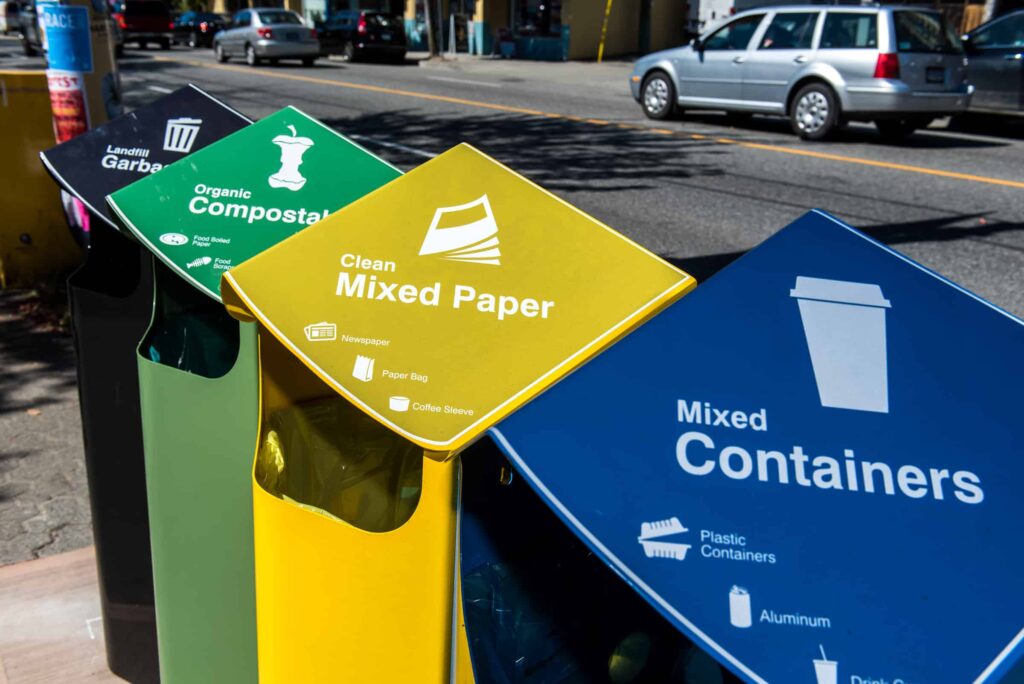Many communities throughout the province utilize what the recycling industry refers to as “multi-stream” collection containers. This means that residents sort paper, boxboard and cardboard and put them at the curb separately from metal and plastic packaging and other containers, such as hot and cold drink cups and soup or cartons. This differs from communities that mix all plastic, metal, and paper packaging and containers together with printed paper and newsprint, and place them in one collection container at the curb.
While some people prefer the convenience of all recyclables going into one collection container, the benefit of sorting before materials are placed at the curb is that more of all types of materials can effectively be recycled. This happens for a number of reasons:
- Paper is protected from food or liquids that might be left over inside food containers, keeping the paper “clean” and protecting its value for end-markets.
- Residents tend to pay closer attention to what materials are accepted in their curbside program when they need to take the extra step of sorting material. This results in the levels of non-recyclables included in the recycling being much lower.
- Multi-stream collection containers allow drivers to easily see if any non-recyclables or not-accepted items have been placed into the recycling bins, which helps avoid contaminants from entering the recycling stream in the first place. This helps to reduce re-work and manual sorting, helps to avoid potentially hazardous workplace situations, and ensures that more recyclables can be turned into a new product or packaging rather than being diverted to landfill.
- Trucks are specially designed, with separate compartments, to keep materials separate from pick up at the curb to the Material Recovery Facility – where recyclables are further screened, sorted, and prepared for recycling before being baled and sold to end markets.
If you live in a BC community that asks you to sort your curbside recyclables, you can learn more about how to sort and why to sort by watching MMBC’s Sort Before to Recycle More video.


